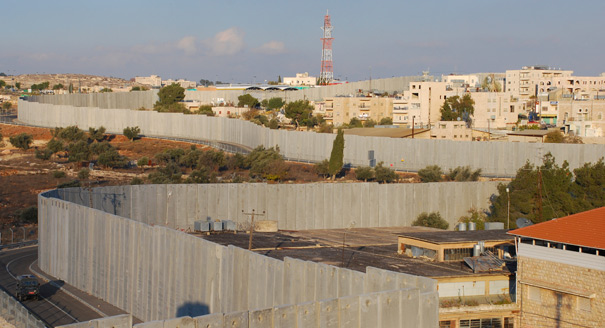Leaning into a multispeed Europe that includes the UK is the way Europeans don’t get relegated to suffering what they must, while the mighty United States and China do what they want.
Rym Momtaz
{
"authors": [
"Judy Dempsey"
],
"type": "commentary",
"blog": "Strategic Europe",
"centerAffiliationAll": "",
"centers": [
"Carnegie Endowment for International Peace",
"Carnegie Europe"
],
"collections": [],
"englishNewsletterAll": "",
"nonEnglishNewsletterAll": "",
"primaryCenter": "Carnegie Europe",
"programAffiliation": "",
"programs": [],
"projects": [],
"regions": [
"Middle East",
"Israel",
"Palestine"
],
"topics": [
"Security"
]
}
Source: Getty
Every week a selection of leading experts answer a new question from Judy Dempsey on the foreign and security policy challenges shaping Europe’s role in the world.
Every week a selection of leading experts answer a new question from Judy Dempsey on the foreign and security policy challenges shaping Europe’s role in the world.
Today, an end to the Israeli-Palestinian conflict is difficult to see. That is the case even though the contours of a two-state settlement have been worked out and a two-state approach has been accepted by majorities in both populations, by Israel’s neighbors, and by the international community. An overwhelming majority of Arab and Muslim states have also endorsed it.
Yet, at the same time, a two-state settlement has become ever more difficult to achieve due to changes on the ground. The territory foreseen for a Palestinian state has been severely fragmented and substantially reduced, in particular due to the building of settlements, military installations, and the separation barrier that cuts deep into the West Bank. East Jerusalem has also become more isolated from its environs, and Palestinian neighborhoods in the potential Palestinian capital’s core have been systematically disrupted by settlement activity.
What is more, the geopolitical split between the West Bank and the Gaza Strip and the blockade of the coastal enclave have become more entrenched since the 2007 Hamas takeover. That has made the population of the Gaza Strip heavily dependent on international aid.
Hopes that the negotiations currently brokered by the United States will lead to agreement are slim. Against the backdrop of large gaps between the two sides’ negotiation positions, stark power asymmetries, strong veto players, and a considerable lack of mutual trust, compromise on a final status will remain elusive. Indeed, the United States would need to assume a much more forceful mediation role and nudge the two sides toward a well-defined final status—along the parameters that France, Germany, and the UK lined out in the UN Security Council in February 2011.
That approach would have to be backed up by an international presence to safeguard the implementation of an agreement. Even that would not end the conflict per se, but it would preserve the two-state option, eliminate many of the friction points, and allow for the conflict’s long-term pacification.
The alternative would not be a harmonious binational state but rather the endurance of conflict. That would erode Israel’s international legitimacy, add to regional instability, and provide a continued rallying cry for radical mobilization across the region.
At a fundamental level, the Israeli-Palestinian conflict almost certainly cannot be ended within the current generation. Yet some progress is possible.
The Palestinian collective trauma of historic displacement and dispossession is compounded by the continued indignity and suffering of the occupation, of refugeehood for millions in neighboring states, and of pervasive discrimination faced by Palestinian citizens of Israel. Jewish-Israeli suffering is also real and raw, albeit much less dramatic; however it is the collective trauma of the holocaust that casts an awesome shadow of fear. Justice, reconciliation, deep mutual recognition, and acceptance are a long way off.
Yet dignified co-existence is attainable. The most immediate and egregious current manifestations of the conflict can be ended if the parties involved and key international actors cut through the excuses and acknowledge that the priority is deoccupation. That requires dismantling the system of Israeli settlements and control over the Palestinians in the lands occupied since 1967. It also means allowing for new mutual security arrangements and more equitable access to resources. Presumably, this would occur between two sovereign states, Israel and Palestine.
That is only likely if Israelis are presented with a new, starker cost-benefit analysis of the merits of continued occupation versus deoccupation. A successful nonviolent path toward deoccupation will have to be strategic and bold in its deployment of diplomacy, pressure, and Palestinian civil resistance.
The alternatives are either armed struggle or far-sighted Israeli political leadership. The former is clearly undesirable, the latter is sadly unavailable.
The main conditions for solving the Israeli-Arab conflict are well known: end the Israeli colonization of the Palestinian territories; (re)draw the Israeli-Arab borders as they were before the Six-Day War of 1967; respect the right of Palestinian refugees to return to their original land; and decide on the future status of Jerusalem. All these steps would allow Palestine to prevail as an independent and sovereign state, while silencing the arguments of those extremists that keep rewriting history to justify their radical stances.
But all of that must be preceded by three conditions: a climate of trust between Israelis and Palestinians; their mutual commitment to create the conditions for a peaceful coexistence; and the presence of strong “honest brokers” to monitor a peace conference. Sociopolitical positions in both Palestine and Israel are becoming increasingly radical, thanks to the presence of Hamas in the former and various extremist movements in the latter. As a result, the preconditions for solving the conflict remain remote.
Yet inaction can only lead to a worsening of the situation. It is high time for the United States and the EU to impose on Israelis and Palestinians the conditions for mutual peace, instead of waiting for the protagonists to take a decision they are far from considering.
God or fatigue.
War or diplomacy will never work in our lifetimes. Yet divine intervention or human weariness may eventually surprise us.
A key element in solving the Israeli-Palestinian conflict will be providing security for both sides through credible enforcement of any agreement. That is where a robust NATO force could play a key role. Such a force would have to be based on a significant U.S. military contingent and should also include Turkish forces.
Perhaps some non-NATO Arab forces, for example from Egypt, could play a role as well. The mission would need a unified command with no caveats or opt-outs, and it would have to be accompanied by a major aid and economic effort to give the Palestinians concrete proof that peace works. Unlike Iraq and Afghanistan, this force could make a real contribution to stability in the most volatile region in the world.
The Israeli-Palestinian conflict would end if the international community halted and reversed the culture of impunity that has characterized the conflict since the beginning.
It is well understood that neither Israeli Jews nor Palestinians aspire to live in the same state, but rather cherish the fulfillment of their individual and collective rights. And it has become a common mantra that the deepening Israeli occupation of Palestinian territories is making a two-state solution based on pre-1967 borders impossible.
Resuming diplomatic talks while the occupation persists—and accelerates—can in no way contribute to resolving the conflict. On the contrary, it risks providing the political breathing space for even greater occupation, thus reducing further the prospects of a solution. Alas, this is the legacy of two decades of the Oslo peace process.
The conflict will end only when the international community, first and foremost the United States and Europe, begins acting in accordance with its declared political preferences and legal obligations. In this respect, the recent publication (and hopefully the implementation) of new EU guidelines making Israeli entities in the occupied territories ineligible for EU funding is the first timid step in the right direction.
Carnegie does not take institutional positions on public policy issues; the views represented herein are those of the author(s) and do not necessarily reflect the views of Carnegie, its staff, or its trustees.
Leaning into a multispeed Europe that includes the UK is the way Europeans don’t get relegated to suffering what they must, while the mighty United States and China do what they want.

Rym Momtaz
The hyper-personalized new version of global sphere-of-influence politics that Donald Trump wants will fail, as it did for Russia. In the meantime, Europe must still deal with a disruptive former ally determined to break the rules.

Thomas de Waal
2026 has started in crisis, as the actions of unpredictable leaders shape an increasingly volatile global environment. To shift from crisis response to strategic foresight, what under-the-radar issues should the EU prepare for in the coming year?

Thomas de Waal
A renewal of relations between France and Turkey is vital to strengthen European strategic autonomy. To make this détente a reality, Paris and Ankara should move beyond personal friction and jointly engage with questions of Black Sea security.

Romain Le Quiniou
Europe is designing a new model of collective security that no longer relies on the United States. For this effort to succeed, solidarity between member states that have different threat perceptions is vital.

Erik Jones